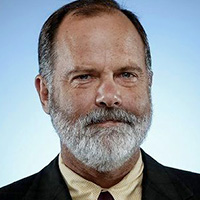This issue of Blueprint marks a departure in our work, now in its tenth year. For the first time, we consider not just one but two questions at the top of the regional agenda. In a sense, that is an accident. Events in January pushed Los Angeles leaders in a new and urgent direction. But in another way, it underscores the interrelatedness of the challenges facing L.A. and California.
The two issues we confront here are the care of foster children and the recovery from this year’s breathtakingly damaging fires. They are separate, of course: Los Angeles was struggling with questions of how best to protect its most vulnerable children long before the Pacific Palisades and Altadena went up in smoke. But fire is indiscriminate, and the victims of those blazes included some of those same children. Already taken from their original homes, they now watched their adopted homes evaporate.
Child endangerment is perennial and heartbreaking. Fires are instantaneous and heartbreaking. The combination is overwhelmingly, crushingly heartbreaking.
If there is any solace in all of this, it is that these crises have attracted some of the region’s wisest and most devoted scholars, researchers and public servants. The tenacious intellects featured in this issue — Elizabeth Barnert, Tyrone Howard, Reece Fong and Shannon Thyne, to name just a few — are joined by committed public officials, including Assemblymember Isaac Bryan and Supervisor Lindsey Horvath, as they tackle problems both immediate and persistent.
Horvath is a case in point. Elected in 2022 by voters focused on reducing homelessness and improving constituent services, she entered a beleaguered Los Angeles County system that has struggled for generations to serve children in foster care. Forced to learn quickly, she had just begun to absorb the complexities of county government before her district caught fire. As she discusses with Blueprint in this edition’s Table Talk, those are the inescapable challenges of governing in this place and at this time.
Given these challenges, policymakers would be wise to lean on the research community for guidance. Happily, there is evidence that they are. Some of the work featured in this issue already is informing policy choices in areas as delicate as whether to remove a child from a troubled home, and as pressing as how to rebuild the Palisades and Altadena after the scourge of fire. Horvath has created a blue ribbon commission to recommend approaches to fire recovery. And Charity Chandler-Cole, who heads the county’s Court-Appointed Special Advocates, draws upon research and her own experience as she confronts difficult questions of race, family and stability in the foster care system.
Invariably, further inquiry into such difficult topics deepens the dilemmas:
Do policies intended to protect children become weapons that criminalize poverty? Should fire rebuilding prioritize getting residents back into their homes, or should it safeguard communities against the next disaster — which, especially with the accelerating effects of climate change, will be upon us sooner rather than later?
These are the questions that motivate researchers and haunt decision-makers. They, in this moment, are at the center of our region’s worries. And they are at the heart of this issue of Blueprint.
























